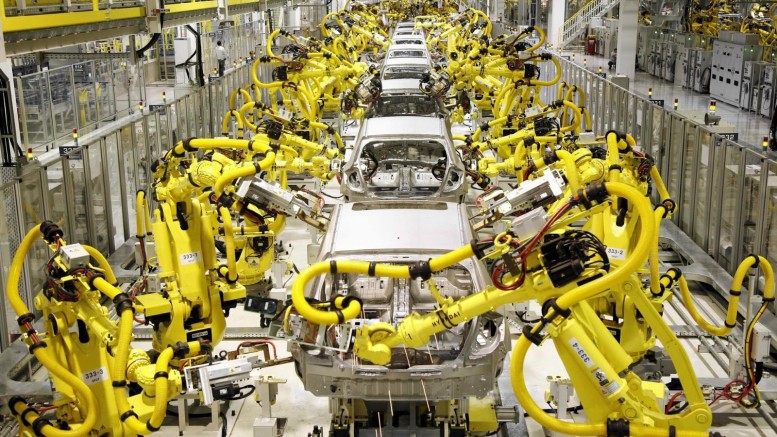Every week, the Greenville Area Development Corporation works with companies who echo the same sentiment, “Our employees are our most important asset!” But the evolution of industrial processing mirrors the advances in technology.
Today’s rapid increase in production levels are rarely the result of adding more staff, but rather the implementation of state-of-the-art equipment and process improvements. So what does that really say about the labor quotient? Is it more important to invest in automatic and robotic systems than people?
While there may be a time when human workers become redundant, a company’s success is still largely dependent upon able-bodied, well-trained personnel. The key difference today is finding the advanced skill sets needed to operate and maintain the more complex and sophisticated machinery and equipment companies have recently installed.
In fact, any community that either already has, can potentially attract, or efficiently train the talent needed for new and expanding companies will walk away with the economic development prize; new jobs and capital investment.
Greenville County ranks as one of the best places in the nation for engineering workforce. Recently, Business Facilities magazine recognized our community as number five in the nation for Science, Technology, Engineering and Mathematics (STEM) education.
This puts us in a globally-competitive position for the attraction of new businesses who demand well-educated workers. Combined with a great quality of life and lower costs of operation, Greenville will remain on the radar screen of many manufacturing, distribution and office operations looking for new locations that seek to enhance their profitability.
Companies that contact GADC, both new and existing, often want to know not only the present status of the workforce, but also about the labor market of the future. The ‘pipe line’ of potential workers is sometimes even more important, especially for a company involved in emerging technologies. Greenville County is far ahead of many competing communities with effective programs already in place at almost every educational level.
From A. J. Whittenberg Elementary School of Engineering, Fischer Middle and NEXT High School, STEM education programs abound in the Greenville County School District. The new Center for Manufacturing Innovation presently under construction on the Millennium Campus is a collaborative effort between Clemson University and Greenville Technical College.
More important is the commitment by local private industries including BMW, Michelin, GE, Bosch Rexroth, and others as partners in the effort. The CMI facility and programs being developed will attempt to meet the employment needs of technology-intensive manufacturing operations. Opening early next year, this should provide Greenville with a steady stream of qualified talent for firms pioneering expertise in 3-D printing, virtual reality and other innovative industries.
The last several years of economic stability has been haplessly labeled as the “jobless recovery”. However, a more detailed analysis reveals an abundance of well-paid jobs, especially in the manufacturing sector. The disconnect lies in the delay to adequately train workers for these new jobs. Greenville County and the Upstate has taken concrete steps will ultimately assure that we are keeping pace with the rest of the world when it comes to a skilled workforce.
The GADC is excited about the stability and opportunity these worker training programs provide as we work with new and existing companies to encourage additional investment and jobs for the Greenville community.
 About the Author
About the Author
MARK FARRIS, CEcD
President and CEO
Greenville Area Development Corporation
Mr. Farris holds a Master’s Degree in Planning from Clemson University, as well as a B.A. in Political Science and a B.S. in Secondary Education. While at Clemson, he was a member of Tau Sigma Delta Honorary Fraternity, and Clemson University Dean’s List. He is also a graduate of the University of Oklahoma’s Economic Development Institute and achieved Certified Economic Developer (CEcD) status in 1993.


Be the first to comment on "Not your father’s work place: How technology is transforming the state’s manufacturing personnel"